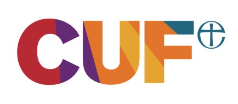Standing Together Against Slavery
Date Posted: Feb 08, 2020.
Tuesday 18 October is Anti-Slavery Day.
What do you think of when you think of slavery? Perhaps you think of big wooden ships taking hundreds of people across the Atlantic Ocean to the Americas, or people trapped in slavery bravely rising up in the West Indies as Wilberforce campaigned in England for their freedom. Or perhaps you think of them winning this battle with the Abolition of Slavery Act in 1833.
29.8 MILLION PEOPLE AROUND THE WORLD ARE IMPRISONED IN SLAVERY AND THERE WERE 3,266 CASES OF SLAVERY REPORTED IN ENGLAND IN 2015 ALONE.
Sadly this is not where the story ends. Today, more people than ever before are trapped in slavery. 29.8 million people around the world are estimated to be imprisoned in modern slavery.[1] This is not just a problem that happens far away, in sweat shops on the other side of the world, but it is happening right under our noses, here in England. In 2015 alone the UK National Referral Mechanism received 3,266 referrals of potential victims of modern slavery. But these are only the cases that have been reported, the reality is that the number is likely to be far higher.[2]
People who are trapped in slavery are often forced to live in squalid conditions at risk of violence and to work for little or no pay. Victims of slavery in the UK are not always obvious, they may be forced to work at your local car wash or in factories, as gardeners or domestic helpers, caterers or sex workers.
Last year large numbers of people were freed from slavery in a factory in West Yorkshire. They had been forced to make beds that were sold in shops such as John Lewis and Next. One man was forced to work over 60 hours a week for three and a half years whilst living in a house in squalid conditions with 40 to 50 other people before he was helped to escape by Hope for Justice.
What can be done?
There are many ways that we can stand against modern slavery. One way is to be aware of people in our communities, to keep an eye out for those who might be trapped in slavery. They may come to your church, use your foodbank or even be employed to clean the house of someone you know.
How can we spot them? The campaign to Help free the UK from Modern Slavery lists seven common signs that might help you to identify someone who is enslaved.
- Physical appearance; they may look malnourished, unkempt or show signs of physical or psychological abuse.
- Seem under the influence of others, perhaps unable to travel on their own.
- They may living in poor conditions, perhaps in the same place that they work.
- They may have few belongings and often wear the same clothes.
- They might not have access to their passport and not be allowed to move freely.
- A victim may be dropped off or collected for work on a regular basis at odd times, such as very early or very late.
- They may be very reluctant to seek help, appear frightened and avoid eye contact.
For more details of what to look out for please take a look at https://modernslavery.co.uk
What are we doing?
At CUF we stand against slavery, against the crime that denies people the dignity, respect and safety that would enable them to enjoy life in all its fullness. Transforming Communities Together, our Joint Venture with the diocese of Lichfield, is active in fighting modern slavery in the West Midlands. They are a core member of the Wolverhampton Anti-Slavery Partnership (WASP) which is a multi-agency partnership working against slavery by raising awareness, increasing support for victims and sharing intelligence to increase impact.
James Henderson, development worker for TCT says, ‘By raising awareness amongst foodbank and drop-in volunteers, victims of trafficking have already been rescued by our partners. Churches can be the vital link in identifying victims and getting them the help they deserve to end this harrowing and evil crime.’
We ask that this year on Anti-Slavery day you think about these warning signs and share them with people in your community so that you can make your community a safe and slavery free place.
If you suspect that someone you know may be a victim of modern slavery you can call the Modern Slavery Helpline on 0800 0121 700.
[1] https://modernslavery.co.uk/index.html
[2] http://www.nationalcrimeagency.gov.uk/publications/national-referral-mechanism-statistics/676-national-referral-mechanism-statistics-end-of-year-summary-2015/file
